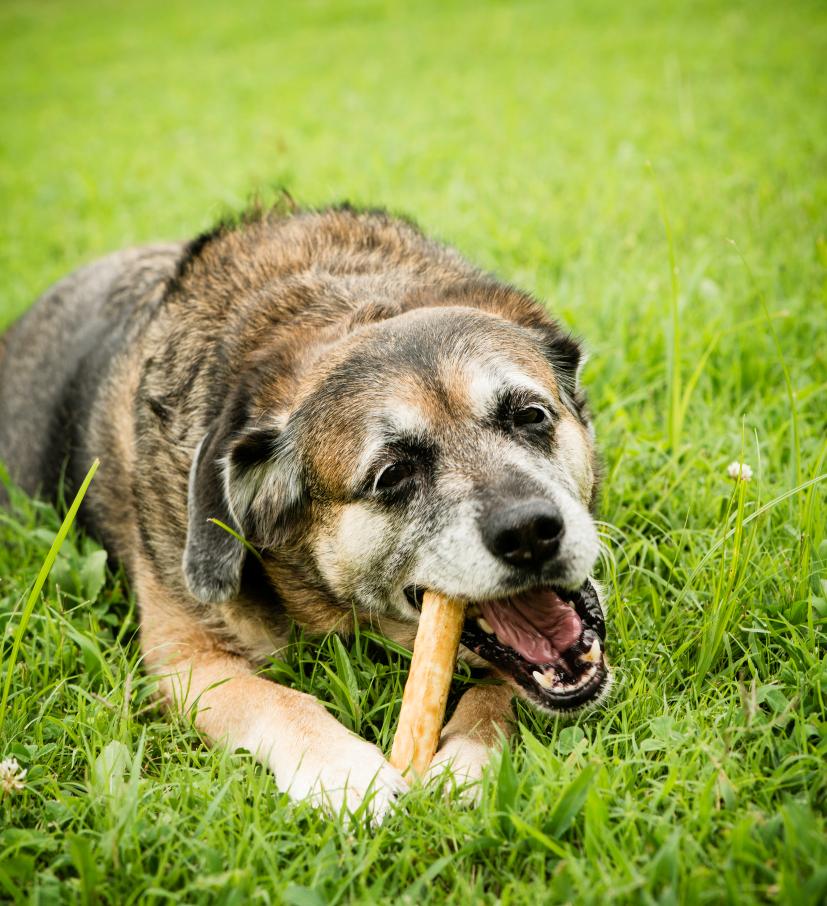Dental Care for Senior Pets

As our pets age, keeping up with their dental care becomes more important than ever. At The Gentle Vet, we know that a happy, healthy pet starts with a clean mouth. Senior pets, like senior humans, need extra attention to maintain their overall well-being, and dental care is an integral part of that. Regular dental exams, teeth cleanings, and attentive oral hygiene can keep your senior pet feeling their best.
Why Is Dental Care Crucial for Senior Pets?
When it comes to senior pets, dental health is about more than just fresh breath. Dental disease can lead to pain, infections, and even serious systemic health issues if left untreated. Many pets develop dental disease by the time they’re seniors, which can impact their quality of life. Regular checkups and cleanings help spot potential problems early, ensuring your pet can enjoy their golden years comfortably.
Recognizing Dental Disease in Senior Pets
Dental disease can be tricky to spot, especially in its early stages. Here are some common signs to look out for in senior pets:
- Bad breath: While pet breath isn’t always minty fresh, an extreme foul odor can indicate an issue.
- Red or swollen gums: This could signal gingivitis, an early stage of periodontal disease.
- Difficulty eating: If your pet struggles to chew, it might be due to dental pain.
- Drooling or pawing at the mouth: These behaviors often point to discomfort in the mouth.
- Discolored teeth or buildup: Plaque and tartar buildup are visible signs that a cleaning may be overdue.
If you notice any of these signs, it’s time for a dental checkup at The Gentle Vet. Addressing these issues early can help prevent further health complications.
What Happens During a Dental Exam and Cleaning?
At The Gentle Vet, our dental exams start with a thorough evaluation of your pet’s mouth, teeth, and gums. Our veterinarian, Dr. Sean, carefully checks for signs of dental disease or abnormalities. Here’s what you can expect during a dental cleaning:
- X-rays: Dental X-rays are taken to check for hidden issues under the gumline. Often, problems like infections or lesions aren’t visible to the naked eye, but X-rays allow us to catch them early.
- Scaling and polishing: Using an ultrasonic scaler, we remove any tartar buildup on the teeth. Afterward, the teeth are polished to help prevent future plaque buildup.
- Extractions if necessary: We perform pain-free extractions if a tooth is too damaged to save. Dr. Sean uses nerve blocks to ensure a comfortable procedure, just like at your dentist.
These steps help maintain your senior pet’s oral health, supporting a healthier, happier life.
Senior Dental Care Tips for Pet Owners
Keeping up with your pet’s dental health at home between professional cleanings is vital to preventing disease and prolonging their well-being. Here are some practical tips for maintaining your senior pet’s dental health:
- Brush their teeth regularly: Use a pet-safe toothpaste and aim for daily brushing if possible. This helps prevent plaque buildup and freshens their breath.
- Provide dental chews: Dental chews can help reduce plaque and tartar. Just make sure they’re appropriate for your pet’s size and age.
- Offer dental-friendly toys: Certain toys are designed to gently scrape the teeth, promoting oral health as your pet chews.
- Use water additives: These products are formulated to help reduce plaque and keep your pet’s mouth clean.
With these simple steps, you can help protect your senior pet’s teeth and gums between visits to your veterinarian. Keeping up with dental care at home complements our professional cleanings, ensuring your pet’s mouth stays as healthy as possible.
Common Dental Problems in Senior Pets
As pets age, they become more susceptible to certain dental issues. Here are a few common problems seen in senior pets:
- Gingivitis and periodontal disease: This inflammation of the gums can progress to periodontal disease, affecting the tissues that support the teeth.
- Tooth decay: Cavities aren’t as common in pets as humans, but they do occur, particularly in older animals with poor oral hygiene.
- Tooth fractures: Senior pets’ teeth can become brittle and are more likely to fracture, especially if they chew on hard objects.
- Oral masses: Some pets develop growths in the mouth as they age, which could require removal if they’re painful or interfere with eating.
If you’re concerned about any of these conditions, Dr. Sean can provide treatment options tailored to your senior pet’s needs.
Keep Your Senior Pet Smiling
Dental care is a lifelong commitment, and it’s essential as pets enter their senior years. A combination of professional dental exams and at-home care can make all the difference in your pet’s health and happiness. Healthy teeth and gums mean fewer infections, less pain, and a more active, enjoyable life for your furry friend.
Taking the Next Step for Your Pet’s Dental Health
The Gentle Vet team is here to help you navigate every stage of your pet’s life, providing gentle, compassionate care tailored to their needs. If you have questions or want to schedule a dental exam for your senior pet, call us today. Let’s keep those tails wagging and those smiles bright!
